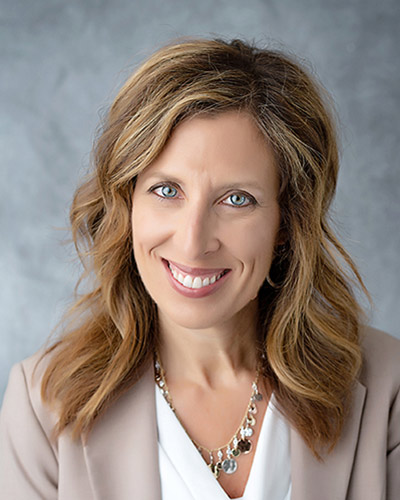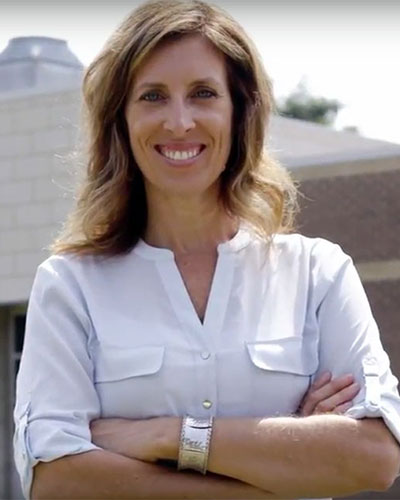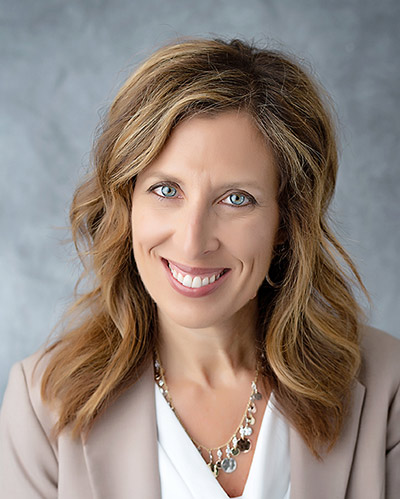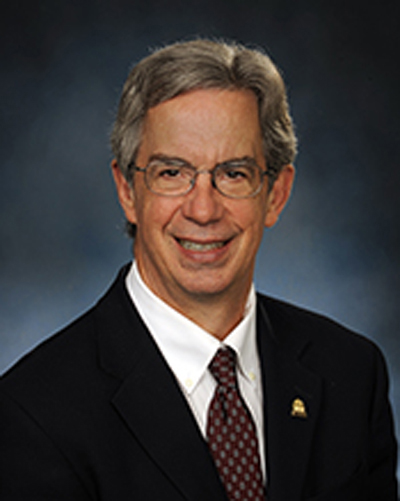May 14, 2020 | Deborah Kotz

Study Involves Innovative Use of Virtual Experts to Help Train Clinicians in Community and Provide Support for Treatment
Researchers at the University of Maryland School of Medicine and the Maryland Psychiatric Research Center are preparing to launch a new study to increase prescribing rates of the medication clozapine to treat schizophrenia. It will employ an innovative educational telementoring program called Project ECHO (Extension for Community Health Outcomes) that connects centralized experts to prescribers and clinicians throughout the state of Maryland.
While clinical practice guidelines strongly recommend the use of this 30-year-old medication for patients with treatment-resistant schizophrenia, health care providers remain reluctant to prescribe it-- even in patients at risk of suicide. Their reluctance stems from a variety of reasons including: logistical challenges from the weekly required blood draws; lack of education and experience; concerns about rare but serious side effects including a decreased white blood count.
“Clozapine remains the most underutilized, evidence-based treatment for schizophrenia,” said Deanna Kelly, PharmD, a Professor of Psychiatry at the University of Maryland School of Medicine. “It has better efficacy and is more cost-effective than most antipsychotics, but it has certain side effects associated with it, so health care providers are less comfortable and often times have not been trained properly on how to use it.”
The new trial, called Clozapine CHAMPION (Center for Help and Assistance for Maryland Prescribers- Intervention Outcomes Network) ECHO Research Study, will recruit 60 clinics in Maryland in order to enroll 300 prescribers of clozapine. The purpose is to increase prescriber knowledge and competence using the medication as well as to increase clozapine prescriptions in Maryland. All participating sites will receive stipends, materials, consultation call center information, and point-of-care monitoring of clozapine. Half of the sites will be randomized to receive the ECHO educational program, while the other half will serve as a control group.
Rather than recruiting patients, the researchers will seek to enroll physicians, nurse practitioners and physician assistants in the professional community who treat patients with schizophrenia at the 60 sites enrolled. These healthcare providers, along with other clinicians at these sites, who want to enroll, will use a teleconferencing model called ECHO to connect with experts who are comfortable prescribing clozapine and can speak about their own experiences with patients and how to best monitor them.
The study will ask participants randomized to ECHO to attend 26 bi-weekly sessions over a 12-month period with 15 minutes devoted to a teaching module followed by an hour-long group discussion where participants present two or three cases of patients they are treating to solicit expert advice on prescribing the drug and managing side effects.
“The telementoring format is very conducive to allowing for an open discussion of difficult to treat cases and helping to guide each other by experiences,” Dr. Kelly said. “Over the course of the year, we are aiming for health care providers to feel more at ease prescribing clozapine to patients who could really benefit from this medication.”
The Clozapine CHAMPION ECHO team study is led by Dr. Kelly and will include a team of investigators and clinicians including psychiatrists, psychiatric pharmacists, a hematologist, and a cardiologist from the University of Maryland, Baltimore (UMB) School of Medicine, Maryland Psychiatric Research Center, UMB School of Pharmacy, Johns Hopkins University, and Sheppard Pratt Health System to assist with cases and education. During and following one year after the CHAMPION ECHO intervention, the investigators will examine Maryland Medicaid data to examine clozapine prescribing. Results are expected in 2023.
 “The School of Medicine is uniquely positioned to do this highly innovative research since the Maryland Psychiatric Research Center is considered one of the top in the nation for schizophrenia research,” said UMSOM Dean E. Albert Reece, MD, PhD, MBA, who is also the Executive Vice President for Medical Affairs, University of Maryland, and the John Z. and Akiko K. Bowers Distinguished Professor. “It aims to fulfill one of our main missions: Improving the lives and medical care of patients in the State of Maryland.”
“The School of Medicine is uniquely positioned to do this highly innovative research since the Maryland Psychiatric Research Center is considered one of the top in the nation for schizophrenia research,” said UMSOM Dean E. Albert Reece, MD, PhD, MBA, who is also the Executive Vice President for Medical Affairs, University of Maryland, and the John Z. and Akiko K. Bowers Distinguished Professor. “It aims to fulfill one of our main missions: Improving the lives and medical care of patients in the State of Maryland.”
Funding for the study is provided by a grant from the National Institutes of Mental Health, and the project includes collaboration with the Maryland Department of Health’s (MDH) Behavioral Health Administration (BHA), the National Association of State Mental Health Program Directors (NASHMPD), the Severe Mental Illness Adviser (SMI Adviser) , the Hilltop Institute at University of Maryland Baltimore County (UMBC), and the University of New Mexico Project ECHO headquarters. Additionally, Athelas, Inc will be working with the team to provide novel point-of-care monitoring devices.
About the University of Maryland School of Medicine
Now in its third century, the University of Maryland School of Medicine was chartered in 1807 as the first public medical school in the United States. It continues today as one of the fastest growing, top-tier biomedical research enterprises in the world -- with 45 academic departments, centers, institutes, and programs; and a faculty of more than 3,000 physicians, scientists, and allied health professionals, including members of the National Academy of Medicine and the National Academy of Sciences, and a distinguished two-time winner of the Albert E. Lasker Award in Medical Research. With an operating budget of more than $1.2 billion, the School of Medicine works closely in partnership with the University of Maryland Medical Center and Medical System to provide research-intensive, academic and clinically based care for nearly 2 million patients each year. The School of Medicine has more than $540 million in extramural funding, with most of its academic departments highly ranked among all medical schools in the nation in research funding. As one of the seven professional schools that make up the University of Maryland, Baltimore campus, the School of Medicine has a total population of nearly 9,000 faculty and staff, including 2,500 student trainees, residents, and fellows. The combined School of Medicine and Medical System (“University of Maryland Medicine”) has an annual budget of nearly $6 billion and an economic impact more than $15 billion on the state and local community. The School of Medicine faculty, which ranks as the 8th highest among public medical schools in research productivity, is an innovator in translational medicine, with 600 active patents and 24 start-up companies. The School of Medicine works locally, nationally, and globally, with research and treatment facilities in 36 countries around the world. Visit medschool.umaryland.edu
Contact
Deborah Kotz
Director of Media Relations
Office of Public Affairs & Communications
University of Maryland School of Medicine
o: 410-706-4255
c: 410-804-0054
t: @debkotz2
Related stories

Monday, July 07, 2025
Dr. Deanna L. Kelly Named Director of the Maryland Psychiatric Research Center
Mark T. Gladwin, MD, Dean of the University of Maryland School of Medicine announced today that Deanna L. Kelly, PharmD, BCPP, a Professor of Psychiatry at the University of Maryland School of Medicine, has been named Director of the Maryland Psychiatric Research Center (MPRC), Dr. Kelly is a internationally recognized clinician-scientist specializing in the advancement of treatments for psychotic disorders and schizophrenia, after serving as Interim Director for three years.

Thursday, September 23, 2021
Dr. Deanna Kelly Appointed New Chair of Institutional Review Board for the Maryland Department of Health
Deanna Kelly, PharmD, Professor of Psychiatry at the University of Maryland School of Medicine (UMSOM), has been appointed to lead the prestigious committee of experts who review and approve all proposed research projects involving human participants for the Maryland Department of Health (MDH). She will chair the MDH Institutional Review Board (IRB) for the next four years, a position she started in July.

Tuesday, October 31, 2017
UM SOM Professor of Psychiatry Recognized for Innovative and Promising Research in Schizophrenia
Deanna Kelly, PharmD, BCPP, Professor of Psychiatry at the University of Maryland School of Medicine (UM SOM), has been awarded the 2017 Maltz Prize for Innovative and Promising Schizophrenia Research from the Brain and Behavior Research Foundation. The Maltz award is considered one of the top awards in the field of psychiatric disorders.

Tuesday, March 01, 2016
UM SOM Appoints Prominent Physician Scientist Dr. Robert W. Buchanan as New Director of the Maryland Psychiatric Research Center
University of Maryland School of Medicine (UM SOM) Dean E. Albert Reece, MD, PhD, MBA, along with Bankole Johnson, DSc, MD, MB, ChB, MPhil, Chairman of the UM SOM Department of Psychiatry, announced today that Robert W. Buchanan, MD, has been appointed Director of the Maryland Psychiatric Research Center (MPRC).
